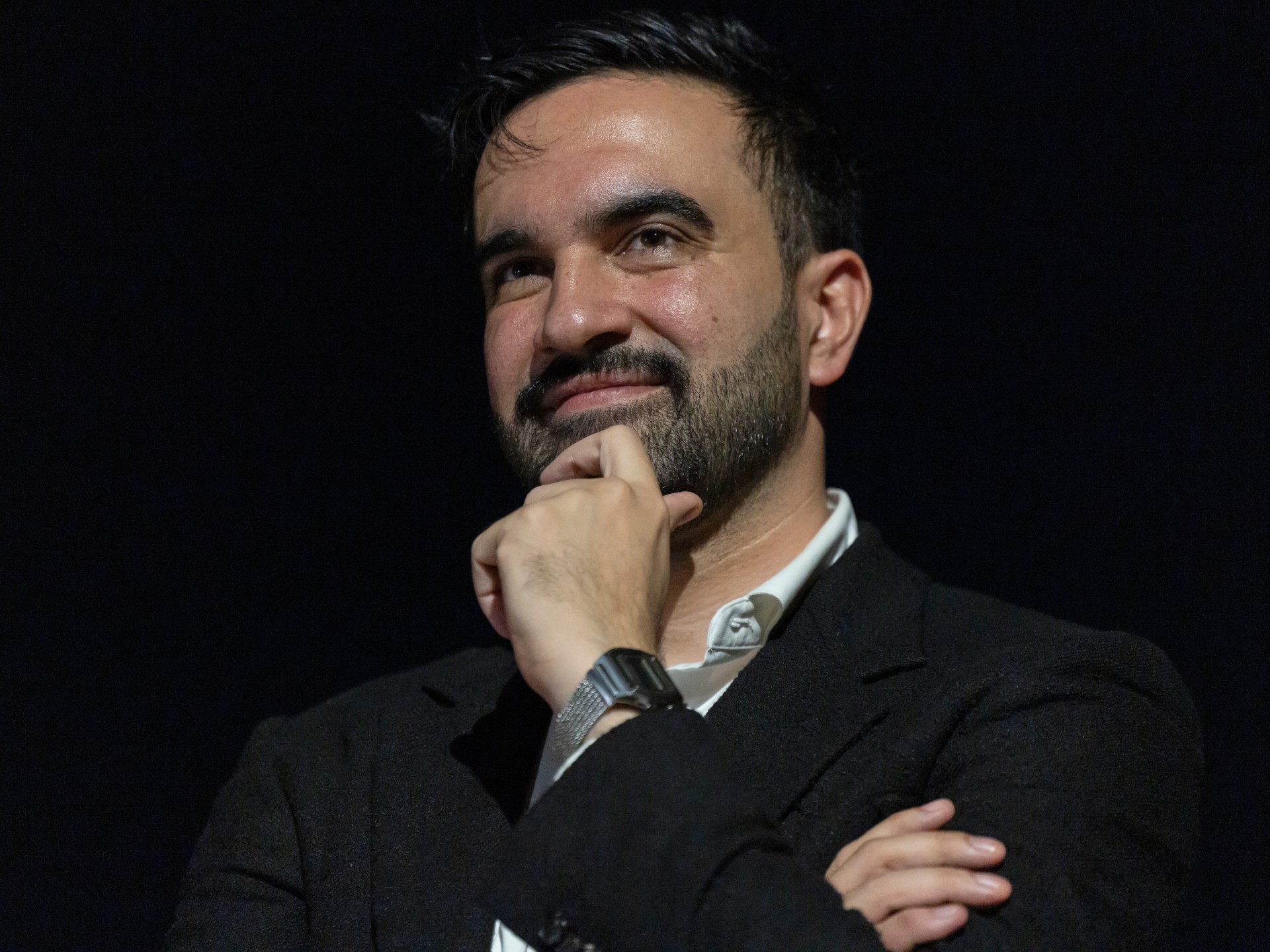LIVE: Manchester City vs Liverpool – Premier League



Super Typhoon Fung-wong is approaching the Philippines, forcing nearly a million people to evacuate. The storm is battering coastal provinces with winds up to 185 km/h, prompting a state of emergency and warnings of ‘life-threatening conditions’.

My cousin Ahmad was nine years old when he suffered a severe head injury in Gaza. A year ago, a missile hit the house next to ours in Nuseirat. The explosion was so violent that it pushed Ahmad off the third-floor staircase of our building. He fell badly on his head, shattering his skull.
We carried him to Al-Aqsa Martyrs Hospital, where the doctors fought for his life. There were moments when the heart monitor barely registered a heartbeat. We all thought we had lost him forever, but Ahmad, with the stubbornness he was known for, challenged death itself.
He survived. Two days later, he was transferred to the European Hospital, where doctors operated to stop the bleeding in his brain and removed roughly one-third of his skull to reduce the pressure. He spent two weeks in the intensive care unit on oxygen and mechanical ventilation. He lost his ability to speak and became paralysed on his left side. His eye nerve was also damaged from the head trauma, and he is at risk of losing his eyesight.
After he regained consciousness, he was kept in the hospital for several more weeks before being transferred to a hospital run by the Red Crescent, where he received physiotherapy for a month and a half. The plan was to stabilise him for several more months before doing a surgery to insert an artificial bone to cover his brain.
But on one of Ahmad’s final days at the hospital, the Israeli army bombed so close to the facility that shrapnel and rubble hit the building. Large debris fell just a few centimetres from Ahmad’s head in the room he was in. That terrified his family and the doctors. They decided it was too dangerous for him to remain without a skull bone in such conditions, so he was transferred back to the European Hospital for surgery.
A synthetic bone was implanted to reconstruct the missing part of Ahmad’s skull. He remained in the hospital for two weeks after the surgery before he was discharged. He was supposed to be on a nutrient-rich diet to recover, but soon famine hit Gaza.
His family couldn’t buy any milk, eggs or any other nutrient-rich foods to help Ahmad heal. Some days, my aunt Iman, Ahmad’s mother, could not even find a kilo of flour. Malnutrition ate away at his recovery. The artificial bone in his skull began collapsing. If one was to gently press the soft area of his head, their fingers would sink in almost 2cm (three-quarters of an inch).
Today, Ahmad lives in a nightmare: a severe head injury, brain bleeding, one eye damaged, half of his body paralysed. He urgently needs reconstructive skull surgery, eye surgery and continuous, intensive physiotherapy.
Despite everything, his mother has tried to keep him integrated so he won’t fall into despair. A few weeks ago, she enrolled him in a tent school so he wouldn’t fall behind his peers. Every day, she would take him there with a notebook and pen. But when they would get back to their tent and take out the notebook, the pages would always be blank.
Eventually, my aunt went to speak to his teachers about this. They told her that he cannot write for more than two minutes before the pain in his head becomes unbearable. He would cry, throw the pen away and lay his head on the table.
His mother tried to teach him at home, but he must sleep one hour before studying and half an hour after, and even then, he struggles to absorb information.
Ahmad is one of 15,600 sick or injured Palestinians who need urgent treatment outside Gaza. Since October 2023, the World Health Organization (WHO) has evacuated more than 7,600 patients from the Gaza Strip, two-thirds of them children. But in recent months, those evacuations have slowed to a trickle.
After the latest ceasefire began on October 10, the first medical evacuation took place two weeks later and included just 41 patients and 145 companions.
The Rafah crossing with Egypt remains closed. Israel now allows medical evacuations only through the Karem Abu Salem crossing in small and unpredictable numbers. Israel controls who gets on the list for evacuation and who gets approval to leave. The process is painfully slow. At the current rate, it would take years to evacuate everyone. Many will not make it.
But Israel is not the only barrier. Even when patients get approval, that does not mean they will leave. They still need funding to pay hospital bills and a foreign government willing to grant them visas.
While medical evacuations are recommended by local hospitals, the process itself is managed by the World Health Organization, which is trying to press foreign governments to cover evacuations, but the list is too long, and few countries are willing to accept patients from Gaza. In many urgent cases, families cannot wait so they try to secure funding or contact foreign hospitals themselves.
People wait. Days, months pass. Patients’ conditions worsen. Some pass away waiting.
Ahmad was initially classified as “not a priority” because he had his first surgery. But famine caused his condition to deteriorate. After repeated attempts by local doctors to prove that Ahmad deserved evacuation, he finally got approval. His family felt joy they hadn’t felt in months.
But then came the shock.
They were told they were responsible for securing treatment themselves, and the funding required for Ahmad’s treatment in a hospital abroad was unaffordable for a displaced family living in a tent. His parents – a teacher and a professor – work, but they do not receive regular salaries. They still pay the bank monthly instalments for a mortgage on their home, which was bombed into ruins. Their meagre income barely covers life in a tent.
But they have not given up. Ahmad’s brother, Yousef, is regularly contacting hospitals abroad, trying to find one that would take on his treatment. His father, Hassan, is writing to contacts abroad, hoping to find anyone who can help.
They keep fighting, but Ahmad’s condition is getting worse. He has now started forgetting the names of family members.
So many children like Ahmad are languishing in Gaza, waiting to be evacuated. Israel, as an occupier, bears the main responsibility. But what is the world doing to save these children?
Wealthy governments that funded and supported the genocide have looked away. They either accept a few cases or none at all. Their refusal to act, to acknowledge Palestinian children’s suffering, to accept their humanity is yet another sign of their moral bankruptcy.

A young Palestinian has been killed after he was shot by Israeli troops during a raid on Far’a refugee camp in the south of Tubas town in the occupied West Bank, according to Palestinian authorities.
Abdel Rahman Darawsha, 26, succumbed to gunshot wounds he sustained when Israeli forces stormed the camp and opened live fire on Saturday night, the official Wafa news agency said, citing the Palestinian Ministry of Health.
list of 4 itemsend of list
Darawsha was rushed in a Palestine Red Crescent ambulance to Tubas Governmental Hospital, where he was pronounced dead.
The Wafa report said Israeli soldiers raided the camp on Saturday, deploying infantry units at the entrance and firing live ammunition.
Israeli forces also carried out raids near Jenin and Ramallah, and in the north of occupied East Jerusalem.
Separately, a group of about 50 Israeli settlers attacked a Bedouin community in the east of Jaba village near occupied East Jerusalem on Sunday, injuring seven Palestinians, said Wafa, adding that they also burned the community’s properties, causing significant damage.
Another Palestinian was wounded in an attack by Israeli settlers in the village of Umm al-Khair to the south of Hebron.
The attacks came just days after the United Nations Office for the Coordination of Humanitarian Affairs (OCHA) said October saw the highest monthly number of settler attacks in the occupied West Bank since the organisation began documenting the situation in 2006.
The UN office said there were more than 260 settler attacks last month in the occupied West Bank – an average of eight per day – resulting in injuries, property damage, or both.
Violence in the Palestinian territory has soared since the war in Gaza broke out in October two years ago, with more than 1,000 Palestinians killed by Israeli forces or settlers since, according to the Palestinian Health Ministry.

After Zohran Mamdani handily won the New York City mayoral election, becoming the city’s first Muslim and first South Asian mayor-elect, Republican detractors in Washington said they would try to stop him from taking office.
President Donald Trump, who threatened to withhold federal funds to New York City if Mamdani won, lent credence to misleading questions about Mamdani’s citizenship and falsely accused the Ugandan-born 34-year-old of being a communist.
Some Republican lawmakers requested investigations into Mamdani’s naturalisation process and have called for stripping him of his United States citizenship and deporting him, accusing him without evidence of embracing communist and “terrorist” activities.
“If Mamdani lied on his naturalisation documents, he doesn’t get to be a citizen, and he certainly doesn’t get to run for mayor of New York City. A great American city is on the precipice of being run by a communist who has publicly embraced a terroristic ideology,” Representative Andy Ogles from the Republican party said in an October 29 news release, after asking US Attorney General Pam Bondi to investigate Mamdani.
“The American naturalisation system REQUIRES any alignments with communism or terrorist activities to be disclosed. I’m doubtful he disclosed them. If this is confirmed, put him on the first flight back to Uganda.”
Randy Fine, the Republican representative from Florida, misrepresented Mamdani’s time in the US when he said on October 27 on Newsmax, “The barbarians are no longer at the gate, they’re inside. … And Mamdani, having just moved here eight years ago, is a great example of that, becoming a citizen. Look, it is clear with much of what I have read that he did not meet the definition to gain citizenship.”
PolitiFact found no credible evidence that Mamdani lied on his citizenship application.
Born in Uganda, Mamdani moved to the US in 1998 when he was 7 and became a US citizen in 2018. For adults to become US citizens, they generally must have lived continuously in the country as a lawful permanent resident for five years, or three years if married to a US citizen.
Denaturalisation, the process of revoking a person’s citizenship, can be done only by judicial order. It’s been used sparingly, such as for removing Nazis who fled to the US after World War II or people convicted of or associated with “terrorism”.
Immigration law experts said they have seen no evidence to support Ogles and Fine’s assertions about Mamdani’s application.
“Denaturalisation is an extreme, rare remedy that requires the government to prove either illegal procurement or a willful, material lie – at a minimum, clear, unequivocal and convincing evidence that the fact would have changed the outcome at the time of naturalisation,” said immigration lawyer Jeremy McKinney. “I’ve seen no credible proof he was ineligible when he took the oath or that any omission was material.”
Ogles and Fine did not respond to PolitiFact’s requests for comment by publication.
The push to question Mamdani’s citizenship started in the summer when he became the Democratic mayoral nominee.
In a June letter to Bondi, Ogles asked the Justice Department to pursue denaturalisation proceedings against Mamdani, “on the grounds that he may have procured US citizenship through willful misrepresentation or concealment of material support for terrorism”.
Ogles cited rap lyrics Mamdani wrote in 2017 supporting the “Holy Land Five”, a reference to five men in the Holy Land Foundation, a Muslim charity, convicted in 2008 of providing material support to the Palestinian group Hamas. Some lawyers have criticised the case’s evidence and use of hearsay.
Ogles and Fine said Mamdani did not disclose his Democratic Socialists of America membership on his citizenship application form; the lawmakers say it’s a communist organisation and Mamdani’s involvement could have disqualified him from citizenship.
The US naturalisation form asks whether applicants have been a member, involved in or associated with any communist or totalitarian party. But the Democratic Socialists of America is not a communist party.
Democratic socialism emerged as an alternative to communism, Harvey Klehr, an Emory University expert on the history of American communism, previously told PolitiFact. Democratic socialists generally “reject the communist hostility to representative democracy, as well as the communist belief in state ownership of the means of production,” Klehr said.
McKinney, the immigration lawyer, said, “DSA membership isn’t a bar to citizenship; failing to list a lawful political group on the (naturalisation form) doesn’t become fraud unless disclosure would have led to a denial. A lyric referencing the Holy Land Five is protected speech absent actual material support to a designated foreign terrorist organisation.”
PolitiFact reached out to Mamdani for comment but did not hear back.
The anti-Muslim rhetoric during the campaign drew criticism from the Council on American-Islamic Relations (CAIR) and even members of the Democratic Party. CAIR, the Muslim advocacy group, called the demand seeking denaturalisation proceedings against Mamdani as racist and Islamophobic.
Mamdani, in an interview with MSNBC in October, also spoke about the anti-Muslim rhetoric during the campaign.
“I think Islamophobia is something that is endemic to politics across this country,” Mamdani told MSNBC.
“And we have seen it normalised. We have seen it accepted. And it has come to a point where to speak up about it is seen as if you are making it into an issue, whereas in fact you are naming that which already exists. And so much of this is driven from an unwillingness to recognise that Muslims belong here in the city.”
The New York Young Republican Club is taking a different tactic, citing the 14th Amendment, the New York Post reported.
The amendment bars from office anyone who “engaged in insurrection or rebellion” or who has “given aid or comfort to the enemies” of the country. The state GOP group said Mamdani provided “aid and comfort” to US enemies by supporting “pro-Hamas” groups and said he supports gangs through his calls to resist Immigration and Customs Enforcement agents.
This would be a long-shot push for Congress to declare Mamdani ineligible for office, requiring a two-thirds vote in both the House and Senate. If passed, it still could be challenged up to the US Supreme Court.
Immigration experts told PolitiFact that calls to resist ICE agents do not trigger the 14th Amendment, as the relevant clause targets insurrection and aid to wartime enemies, not domestic policy criticism.
The Justice Department can strip US citizenship by filing criminal charges for naturalisation fraud or a civil lawsuit.
In either case, the government would have to prove that an applicant made a false statement in a citizenship application, and show that the statement would have affected the application.
The government’s standard to clear in a criminal case – proving guilt “beyond a reasonable doubt” – is higher than a civil case standard of presenting “clear and convincing evidence.” The more common civil process lacks certain constitutional protections, such as the right to a court-appointed lawyer, Cassandra Burke Robertson, a Case Western Reserve University law professor who studies denaturalisation, said.
Robertson said it’s “extraordinarily unlikely that a proceeding against Mamdani would gain any traction”.
“The bigger risk, in my mind, is the potential chilling effect on individuals with fewer resources who might be afraid to speak out against the government,” Robertson said.
Although denaturalisations generally have been rare in the US, they’ve become more frequent under the Trump administration, Irina Manta, a Hofstra University law professor who studies denaturalisation, said.
In June, the Justice Department issued a memo directing lawyers to prioritise denaturalisation cases. The memo’s list of priority categories includes people whom the administration says pose national security concerns, gang members and a catchall category for “any other cases referred to the Civil Division that the Division determines to be sufficiently important to pursue”.
If Mamdani were to have his citizenship revoked, his immigration status would revert to his previous one – lawful permanent residence. That would disqualify him from serving as New York City mayor.

Why is Israel playing in European football? Samantha Johnson unpacks why the Israeli national team and clubs ended up under UEFA, why they’re not the only non-European country playing for Europe and how sport can defy geography